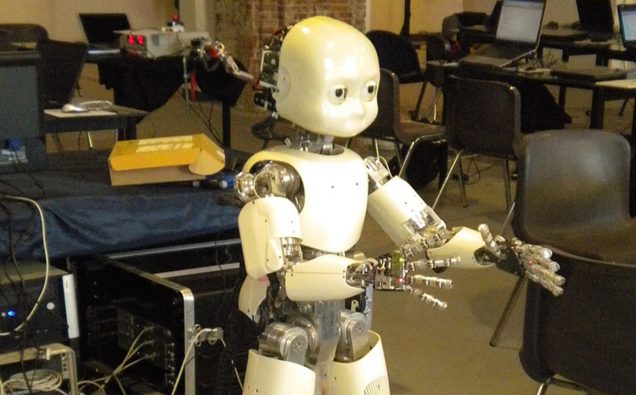
Technological innovation has been a hallmark of American progress but the latest developments in artificial intelligence are disrupting industries, jobs and growth prospects for communities.
So, what is the way forward for America to meet these challenges and retain its global leadership?
A new study suggests that the United States must create better career pathways for its workforce and prepare its citizens in a way that helps them adapt newer technologies and aligns education with job opportunity requirements.
The executive summary of a new report, The Work Ahead: Machines, Skills, and U.S. Leadership in the Twenty-First Century carried out by the Council on Foreign Relations also argues that retrenchment is not the answer and immigration and trade should not be shunned.
The report counsels a focus on how to rebuild the links among work, opportunity, and economic security for all Americans in the face of accelerating change.
Here are the seven major findings of the Task Force as described in the executive summary of the study on the CFR website:
- Accelerating technological change will alter or eliminate many human jobs. Although many new jobs will be created, the higher-paying ones will require greater levels of education and training. In the absence of mitigating policies, automation and artificial intelligence (AI) are likely to exacerbate inequality and leave more Americans behind.
- Embracing technological innovation and speeding adoption are critical for U.S. national security and economic competitiveness. Openness to trade and immigration are also vital for maintaining U.S. technological leadership.
- Strong economic growth that leads to full employment has been the most consistently successful approach for raising the wages of Americans.
- The lack of accessible educational opportunities that are clearly and transparently linked to the changing demands of the job market is a significant obstacle to improving work outcomes for Americans.
- U.S. efforts to help displaced workers are inadequate. Unemployment insurance is too rigid and covers too few workers, and retraining programs are not based on the best global models.
- Too many jobs are going unfilled because of restrictions related to credentialing, mobility, and hiring practices. More could also be done to create new opportunities in higher-unemployment regions.
- Current workplace benefits—from sick leave to retirement plans—are too often available only to full-time employees, and are not adapted to the emerging world in which more workers are part-time, contract, or gig workers.
The study also offers recommendations for government, business, educators, and nongovernmental institutions. Here are the seven major listed in the executive summary of the Task Force are:
- Governments should adopt an explicit goal of creating better jobs and career paths for Americans. Initiatives should aim especially at attracting investment and revitalizing entrepreneurship.
- The United States needs to remain a world leader in technology and innovation. This should be supported by increased public and private research and development (R&D), support for commercialization of new research, and an open door to highly skilled immigrants.
- Governments should implement policies aimed at maintaining strong growth and demand for labor. Employers should commit themselves to a “high-road workplace” that offers employees decent pay, training, scheduling, and benefits. Special measures are needed for communities struggling to attract investment and jobs.
- The United States should set and meet a goal of bringing postsecondary education within the reach of all Americans and linking education more closely to employment outcomes.
- Unemployment insurance should be overhauled to reflect the realities of the current economy, and mid-career retraining programs should adopt the best features of the European “flexicurity” models.
- Governments and employers should work to reduce barriers to labor mobility for Americans, including high housing costs, occupational licensing restrictions, and inflexible hiring practices.
- The United States should create portable systems of employment benefits tied to individual employees rather than to jobs themselves. Employers should also help fill the gap by expanding benefits for their part-time and contingent workers
- SOURCE: Council on Foreign Relations


















